|
A Quick, "No B.S." Guide To Muscle-Building and Fat-Loss Supplementation
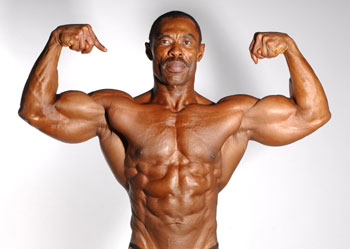 One of the single most frequent questions I hear is "what supplements should I take to build muscle/burn fat?" To that question I always answer with a question: "what does your training and nutrition look like?"
One of the single most frequent questions I hear is "what supplements should I take to build muscle/burn fat?" To that question I always answer with a question: "what does your training and nutrition look like?"
The blank looks I often receive in response tell me all I need to know. Many people view supplementation as the sole key to results...the golden ticket, magically unlocking the door to the body they want. They feel without supplements, that door just won't open!
My view is different...
I use training and nutrition to rip open the door and supplements to help me step through it AFTER it's open. Because the bottom line is, without proper training and nutrition to start with, the door to results WON'T be open and using supplements to try and get through it is going to be like pushing on a door marked "Pull." Not going to happen.
I'm not writing this to bash supplements, believe me. I use supplements every single day and always will. I just want to be sure that YOU are getting only the supplements you need and NOT getting stuck with the supplements that you don't.
*** That being said, I want to be clear that I am NOT a doctor or nutritionist - this is NOT medical advice and DO NOT go against what your doctor or nutritionist has recommended to you! ***
So here's my common-sense, totally unglamorous approach to effective supplementation...
1. Start with the basics, no matter what your goal
If want to build muscle and you weigh 147 lbs soaking wet, you don't need some ground-up reindeer toenail fungus from Siberia or some chemical that was discovered 15 minutes ago and has 7 consonants in a row in its name. You need to get yourself under the squat bar and pile some weight on it. Then you need to feed your body NUTRIENTS.
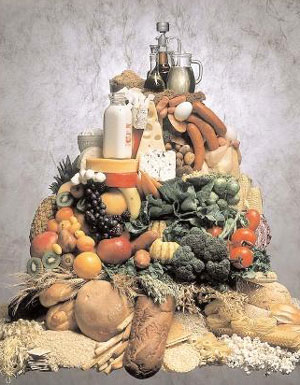 And if you want to lose fat, let me put it this way...if the soundtrack of your life sounds like "Flight of the Bumblebee" because you're so hopped up on herbal stimulants, you're NOT going to get the results you want. But a completely shot nervous system, yes.
And if you want to lose fat, let me put it this way...if the soundtrack of your life sounds like "Flight of the Bumblebee" because you're so hopped up on herbal stimulants, you're NOT going to get the results you want. But a completely shot nervous system, yes.
So let's boil it right down. You need to start with a good multivitamin. Cripes, even take a Flintstone multivitamin if that's all you can get your hands on! If you're not taking a multi, you are NOT giving your body what it needs for health, muscle growth OR fat loss.
Here's something to chew on...most obese people are actually very malnourished! Sounds strange but it's true. They're not lacking in calories...what they're lacking in is nutrients (like vitamins and minerals). But the foods they eat don't contain the nutrients that they need so their bodies tell them they need more food. And they eat more food. And they get fat.
If you want muscle, your body NEEDS those nutrients to even build muscle in the first place! Set the protein aside for a minute. Your body needs vitamins and minerals to actually USE that protein to build muscle.
Give your body a decent amount of nutrients in the form of a multivitamin and it'll pay off. And don't give me that garbage about having "expensive urine." I think my urine is worth it. I'd rather have "expensive urine" now than have "astronomically expensive urine" later caused by the drugs needed to make up for the textbooks full of disorders caused by chronic malnutrition.
I ask you, what's more expensive...a $10 bottle of Flintstone vitamins now or a $90 pill to make up for bone loss later.
In this category, I would also include a "greens" supplement. These are available at all health food and supplement stores. Basically, they take healthy foods (like barley and wheat grass) and turn them into a powder so you get all the nutrients without having to eat the food itself. This is concentrated nutrition and VERY good to take.
2. Protein is key but don't get nuts about it
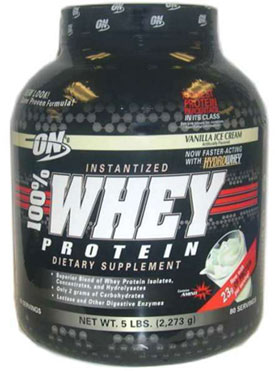 You need protein to build muscle. It's just that simple. Protein is the basic building block of muscle tissue. I supplement with protein every day. But what I DON'T do is buy protein that's full of isolated fractions of this and "enhanced" with micrograms of that.
You need protein to build muscle. It's just that simple. Protein is the basic building block of muscle tissue. I supplement with protein every day. But what I DON'T do is buy protein that's full of isolated fractions of this and "enhanced" with micrograms of that.
Sure, those fancy protein powders are backed by research and all that, but in the real world, it comes back to training and nutrition. The people I see buying those expensive proteins are often the ones stopping off at McDonald's on the way to supplement store or repping out on the pec deck machine for countless sets!
In order for your body to really make use of the extra protein you're giving it, you have to give it a reason. And that reason is hard, effective training. Next, you give your body quality nutrition to fuel those workouts and help recovery. THEN you give it the extra protein.
I can promise, if you're not training hard, it won't matter a bit if you give your body $40 a pound whey protein isolate or a bag of powdered skim milk. You won't get results.
3. Take your minerals
Here's a newsflash...there is no such thing as a Nitric Oxide deficiency. But calcium, magnesium, zinc, etc.? You bet. By sheer weight alone, minerals account for a fair percentage of your bodyweight (your bones are made of minerals). They're also absolutely CRITICAL for so many bodily functions and processes (including muscle building and fat loss), I can't even begin to name them all.
Without minerals, you would die. And without adequate mineral intake, you won't maximize your muscle gain OR your fat loss.
Taking that multivitamin I mentioned above is a great place to start. But even multivitamins don't have enough of the "big" minerals to maximize your results. Calcium, for example, is a mineral you should get 1200 mg of per day. That makes for a BIG pill and it's just not practical to put that much in a multivitamin. The same goes for magnesium.
My recommendation...take at least 1200 mg of calcium per day in supplemental form (citrate is well absorbed - don't go higher than 2000 mg per day) and 600 mg per day of magnesium (again, citrate is good as is glycinate or aspartate).
** For zinc, the amount in a multivitamin may be enough for you but you can supplement with 15 to 50 mg per day (don't go over 150 mg per day and be sure to take a day or two off of extra zinc at least once a week to avoid taking too much).
Just adding these three minerals to your supplement regimen will pay off with increased results and better overall health.
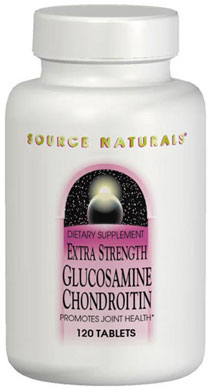 4. Protect your joints
4. Protect your joints
Want to build huge muscles and maximum strength? You need to lift heavy weights. Makes sense, right? But what parts of your body take the brunt of all that pounding? Your joints!
And if you went to a gym and asked, by show of hands, how many people take joint-protective nutrients, I have a feeling there wouldn't be many people reaching for the sky.
Joint-protective nutrients include glucosamine, chondroitin, MSM, collagen, and Vitamin C. They are EXTREMELY important if you're lifting heavy and want to keep your knees and shoulders for later in life.
The example I use for this category is myself. When I first started training, I didn't have any idea that joint-protection was even necessary. As the years went by, I noticed whenever I lifted heavy for long stretches, my shoulders, knees and elbows would start to hurt and wouldn't ease up until I stopped lifting heavy for awhile.
After a little research, I began using a lot of joint-protective nutrients like glucosamine and Vitamin C. Now I can do extremely heavy partial training (often with 2 to 4 times the amount of weight I could use for a full range of motion) and never have joint pain.
Sure, it doesn't sound glamorous, but if joint pain stops you from lifting heavy, you're not going to build maximum muscle and strength. And all the pickled jellyfish tentacle extract in the world isn't going change that.
5. Take your fats
I'm talking about Essential Fatty Acids here (Omega 3 and Omega 6). Our food is notoriously low in essential fats yet they are critical for good health, muscle-building hormone production, and immune system function (among many other functions).
Flax oil, fish oil, krill oil, borage oil, olive oil...these are all good sources of Essential Fatty Acids. Taking these regularly can yield great benefits in your training - even 5 grams a day of any of those I mentioned will help.
6. Go with the research
Creatine has a TON of research proving its effectiveness. Glutamine also has plenty of research backing its use. But you can't show me a scientific, peer-reviewed study published in a major journal that demonstrates the muscle-building properties of NO2 supplementation. The research just isn't there, even though all the glossy pictures and fancy graphics plastered in the all the magazines claim otherwise.
So once you've got your training, nutrition and your basic supplementation in order (multivitamins, protein, minerals and joint protection), THEN you can start adding in the "fun" stuff. Creatine and glutamine are the best places to start.
And if you've still got money left over, definitely give some new stuff a try! I do the same thing myself on a regular basis. Do some research before buying and give some new supplements a try from time to time.
But here's the key...don't try everything at once. Rotate a new "treat" supplement in every month or so. See how your body responds. If you get greater results, you'll know it's a good one for you.
Stacking supplements (using a number of supplements in combination with each other) is often recommended and this can be a good way to go, especially because some supplements can be more effective when combined with others. But with all new supplements and with stacking, be absolutely sure you're not compromising on your basic supplements and make sure you are careful about researching how different supplements interact with each other!
The Bottom Line:
Supplements are a tool in your toolbox. If you can't get results WITHOUT supplements, i.e. your training and nutrition aren't effective, adding exotic supplements is NOT going to fix a broken program.
So before you ask "what supplements should I take to build muscle or burn fat," pick up the basics and get your training and eating sorted out.
Only THEN should you worry about what supplements will give you that extra 5% of results!
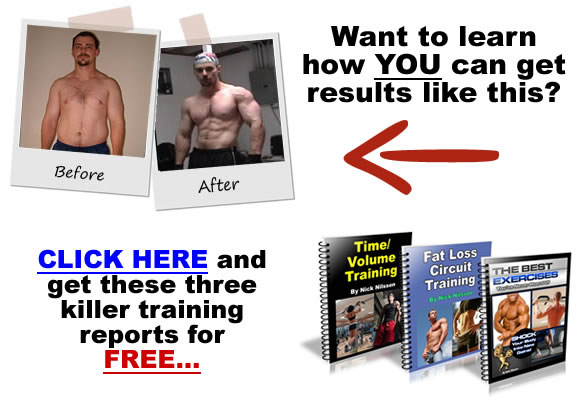
More Articles by Author Nick Nilsson
Return To Weight Lifting Articles Archive
|